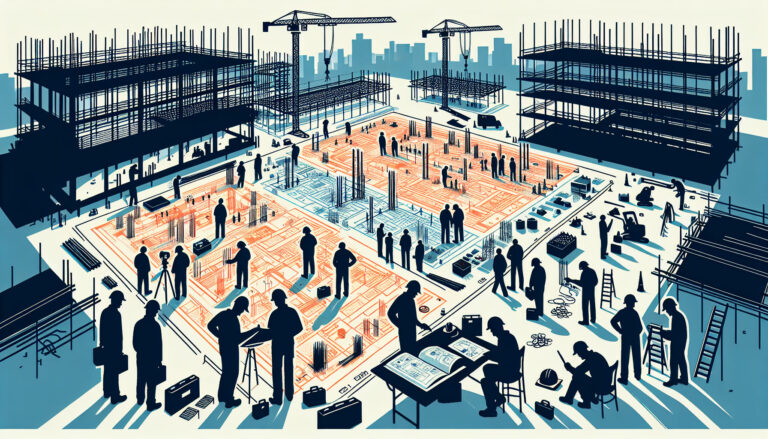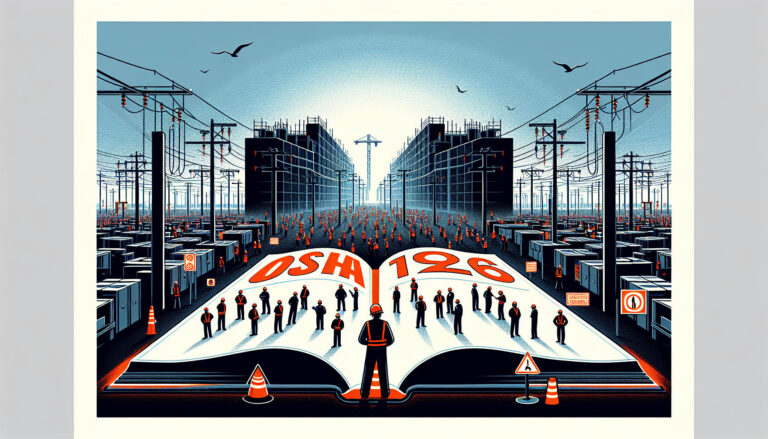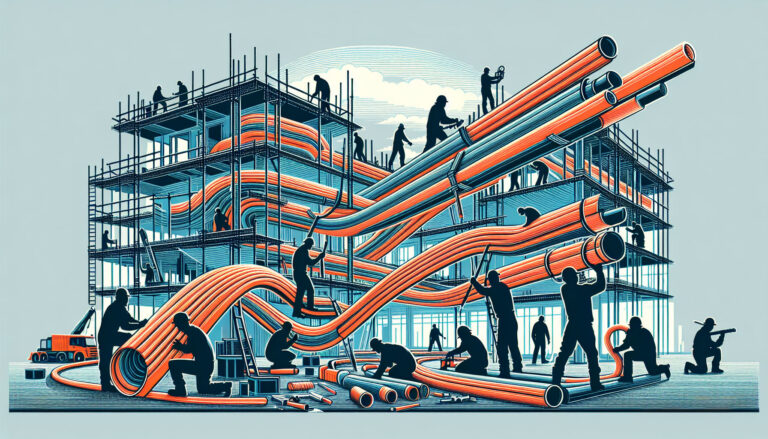NJ prevailing wage laws require that all contractors are paid according to the correct wage rates when working on government-funded construction projects. The New Jersey Prevailing Wage Act describes projects that qualify as public and contracted work paid by a “public body” (such as the state of New Jersey or local municipalities).
Initially enacted in 1964 by the U.S. Department of Labor and Workforce Development, it’s intended to protect and safeguard construction workers from exploitation by establishing proper pay rates based on their craft. Commissioners determine the rates themselves on a state-by-state basis.
One thing to note is that New Jersey has a separate set of prevailing wage laws for contractors that provide building services (including maintenance and cleaning) to leased or state-owned buildings.
The penalties for not paying a prevailing wage in NJ include halted work, fines, and even jail time. Read on to learn more about prevailing wages and how the SmartBarrel device helps job sites remain compliant.
Why is paying a prevailing wage in NJ important?
Construction workers (especially laborers) often work long hours, so prevailing wage laws ensure they get paid fairly according to what they deserve. In other words, these laws prevent workers from being paid too little in exchange for the labor they’re providing.
It’s a layer of employee protection to support the well-being (and therefore efficiency) of workers on public works projects. It also helps employers by protecting them against unfair competition, which would otherwise be a detriment to the project’s progress.
What jobs fall under the New Jersey Prevailing Wage Act?
Qualifying projects for the New Jersey Prevailing Wage Act include municipal government projects that cost over $16,263 and projects from other public entities that cost over $2,000.
Every project required to pay a prevailing wage should specify in the contract a written amount and indicate adherence to the law (i.e., that workers will not be paid any less).
Who is responsible for following NJ prevailing wage laws?
All contractors and subcontractors who have workers under them providing labor for public works projects (or workers that provide building services for leased or state-owned buildings) are responsible for following NJ prevailing wage laws.
Responsible parties are required to file a Public Works Contractor Registration (PWCR) application with the Department of Labor and Workforce Development. A 1-year registration costs $500, and will provide you with a certificate that needs to be presented alongside all public project bids as proof of registration.
When wages are paid, a certified payroll report must be submitted to the contracting authority within 10 days.
What are the prevailing wage rates in New Jersey?
The actual prevailing wage rates in New Jersey depend on a worker’s craft, seniority, and the area they’re working in. Here’s a list of current prevailing wage rates by county.
Atlantic County, for example, lists the following rates for workers:
Bricklayer/Stone Mason Journeyman:
- Wage: $45.20
- Fringe (benefits, pensions, paid time off, etc.): $33.73
- Total: $78.93
Carpenter Foreman:
- Wage: $59.67
- Fringe (benefits, pensions, paid time off, etc.): $34.56
- Total: $94.23
Electrician General Foreman:
- Wage: $65.25
- Fringe (benefits, pensions, paid time off, etc.): $56.68
- Total: $121.93
Building services rates can differ and are issued by the General Services Administration (GSA). Wage determinations listed by county can be found at SAM.gov, which lists everything from janitors to locksmiths.
Those who are initially unaware of prevailing wages may be surprised at how high labor rates can be compared to projects that do not fall under prevailing wage laws. While you can defer project costs until you’ve received payment from a customer, workers need to be paid on time to adhere to the law.
It’s important to monitor costs carefully, since the increased rate can have an impact on the project’s cash flow and available funds. You’ll need to ensure that you’ve budgeted enough to sufficiently pay workers while covering other project expenses.
What happens if a contractor doesn’t pay a prevailing wage in NJ?
The penalties for not paying workers enough or on time can include:
- A stop work order, which immediately halts any work or activity on the public work project
- Fines of $2,500 for the first offense, and $5,000 for every following offense
- Being charged with a disorderly persons offense, which can lead to both fines of $100 to $1,000 and imprisonment for 10 to 90 days
Each week that workers go unpaid is considered a separate violation, which is why it’s important to address it as soon as possible since it can compound over time.
Workers that aren’t receiving prevailing wages can file a written complaint, sent to the commissioner within two years that the offense occurred.
Improve your payroll management with SmartBarrel
Paying a prevailing wage in NJ is important to adhere to the law and avoid costly fines. Construction projects, especially larger ones, typically have a lot of moving parts, so managing workers can be a lot to handle.
Modern technological solutions simplify the accounting and payroll process to ensure you’re remaining compliant while also making sure that workers are truthful in reporting their hours.
The SmartBarrel device is a workforce and labor management solution that’s built to last and make your job easier. SmartBarrel’s sturdy, plug-and-play box is solar-powered, LTE-connected, and weather-resistant.
Workers clock in through an RFID fob and biometric facial recognition to verify attendance, guaranteeing accurate timekeeping. It’s fraud-free and headache-free check-in for all workers.
Plus, no more chasing workers down for information—subcontractors benefit from receiving approved timecards, saving them the trouble of having to manage, maintain, and clean up a worker’s recorded hours.
You can export data any time to payroll, and link the device to enterprise resource planning systems to further streamline the process. The SmartBarrel device integrates with Procore, CMIC, FoundationSoft, Viewpoint, and Autodesk.Worried about remaining compliant with NJ prevailing wage laws? Book a demo with SmartBarrel today!






